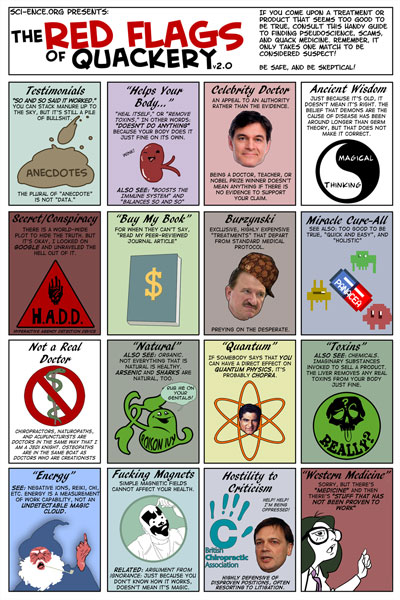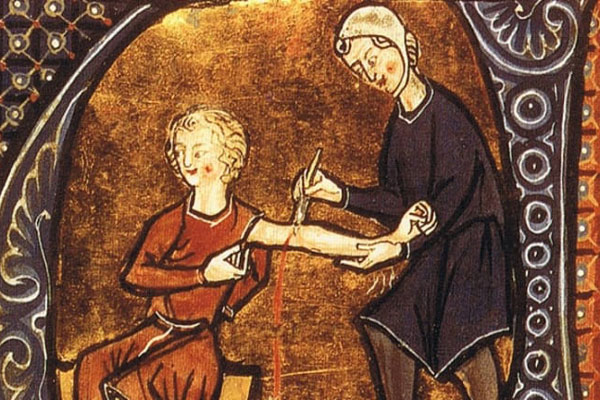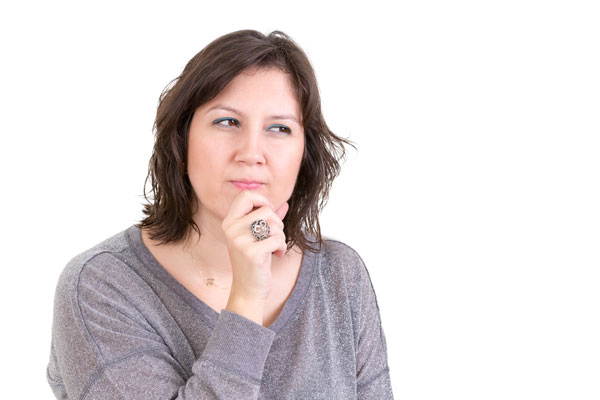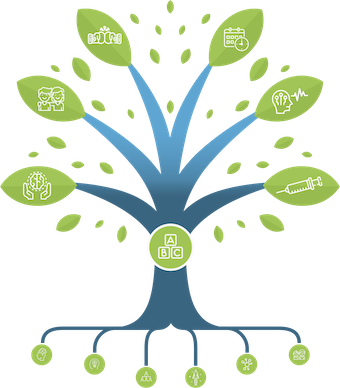Does it work? Is it safe? Finding your way in the jungle of migraine “cures”
If you live with migraines, you probably want to get rid of them. The first step in such a situation is often to look online and use Google. You will then enter a complex world of promises, advertisement, scientific websites, and claims of miracles. You will find loads of people sharing stories about “how I got rid of my migraines with this simple trick.”
What is truly proven? What is a scam? Could it work for me?
Let’s address the miracle claims right now.
There is no miracle cure for migraine.
If anyone promises you a 95% cure for migraine, put this in the same category of «losing weight while eating what you want» and «get rich while staying at home». It’s sadly not true. Sometimes, this claim is made by a well-intended person who found his/her own cure and wants to share it…but often it is from someone trying to sell you something.
There is no one-size-fits-all treatment, because migraine is variable.
Migraine is a complex neurologic disease. Every person has its own triggers, medical factors, symptoms etc. The treatment has to be adapted to your own personal situation. Read more about the Ping Pong theory on this website and use the Migraine Tree to evaluate different options.
Examples of miracle claims based on “cause”. Treatments may work for some but definitely not for all.
“The cause of migraine is … and I can treat it for you.”
- “Your neck … you should get your vertebrae aligned.”
- “Your sinus … get surgery and be cured.”
- “Your temporo-mandibular joint… try this oral appliance and you’ll be fine.”
- “Your facial nerves … have them decompressed and be well.”
Behavioral approaches are a good start but may not be sufficient.
Eating less sugar will not completely treat diabetes. Avoiding pollens may improve your asthma, but you may still need inhalers. Some «mild» migraine situations may be improved with simple behavioral interventions, but in more severe case medications may be essential. Drinking more water is not the cure for migraine. There is no unique cure for migraine.
What your neighbour/coworker/sister-in-law may randomly recommend:
- Manage your stress
- Drink more water
- Stop eating chocolate
- Stop your oral contraceptives
- It’s all in your head, put up with it

Remember, migraine is a real neurological condition and any single change is unlikely to cure your migraines.
Are vitamins and alternative medicines better than medications?

Current migraine medications are far from perfect. People with migraine are absolutely right to be wary of medications. Many have side effects, and none work for everyone. Most offer only a partial relief. This being said, medications can be life changing for some people and side effects do not happen for everyone.
Pharmaceuticals are regulated by serious institutions and they have been studied in clinical trials following strict rules. Yes, the pharmaceutical industry aims at profit and can be greedy. But remember that alternative medicines are also huge markets and they are not regulated for their claims of success.
Pseudoscience can be very appealing, but it is misleading.
Since the beginning of time, humans have tried different ways to treat disease. Some treatments were dangerous and plain ridiculous, but still remained popular for years because they were well advertised and promoted by charismatic people. To read more about that, consider the excellent book “Quackery” by Lydia Kang, it’s instructive and funny.

Read More:
What does «scientifically proven» mean?
If a treatment is «proven to be effective according to science» it means that
- There is a reasonable explanation of why it should work, based on the current understanding of how the body works.
- The treatment has been shown to work better than a placebo in well-conducted studies, ideally many of them. The studies also have to report side effects and safety.
Having only a theory with no evidence of effectiveness is not enough. Many very interesting previous treatments were based on theories…but were proven wrong and dangerous in the end.
The placebo response can explain improvements after a treatment with no real effect. To read more about placebo, follow this link.
Ancient remedies for migraine:
- Putting a clay crocodile on head (Egyptian)
- Bloodletting
- Inserting garlic under the skin of the temple (ouch!)
- Bathing in milk with rose oil (sounds nice)
- Injecting milk in the skin
- Arsenic (may cause poisoning and death)
- Sitting on a rotating chair and turning it full speed to redistribute the blood (yikes!)

Modern migraine cures for which the scientific evidence is weak or for which the benefits are mostly from a placebo response
- Diets: anti-histamine, ketogenic, elimination of triggers, gluten free, lactose free
- Acute treatments: lemon and Himalayan salt
- Acupressure points, massage
- Daith piercing, migraine surgery
- Homeopathy, which has been proven to work no better than placebo

If there’s no scientific study, does it mean it does not work?
No, the lack of a good study just means we do not have proof. Some treatments are difficult to study or compare to a placebo. Studies are very costly and funding is not always available to do them. Absence of proof does not necessarily mean there is no effect. But there’s a big difference between accepting that “maybe it works but we don’t know for sure” and promoting a treatment as “100% effective based on this testimonial.”
What should you consider when you evaluate a treatment for migraine?

Do we have evidence that it is safe?
That’s the most important question. If there are scientific studies, you will have access to statistics about side effects. Alternative treatments are not necessarily safe.
What is the evidence that it is effective?
If the treatment has been studied in a scientific manner, you should be able to find clear numbers about the 50% success rate (chances of improving by 50% or more). A decrease in migraine days is another way to observe results.
Is it possible that this is a pseudoscientific or unproven approach?
You may want to at least be aware that a treatment is controversial before trying it. Search our website for more information. Remember that a testimonial (or even 10 testimonials) is not the same thing as a study on hundreds of people with a placebo comparison.
Is the cost reasonable?
That’s very important. Migraine patients are an easy target for treatment scams because they may be desperate, ready to try anything, medical care is not easily accessible and current medical options are not always effective or tolerated. Before spending a lot of money in diets, supplements, procedures, injections, infusions of vitamins, try to learn about success rates.
Remember that many treatments (homeopathy, devices, vitamins, manipulations) are not regulated by the same laws as prescription drugs, and therefore companies/clinics can promote them without any scientific proof of efficacy or safety.
Whatever you try…
- Open your mind to different approaches. Consider all options, including behavioral, medications, alternative.
- Find reliable information and don’t rely only on advertisement or anecdotes.
- Monitor the response with a headache diary. Expectations and wishful thinking may bias our evaluation.
- Use the treatment regularly over 2-3 months and then re-evaluate. Don’t go on for months and months with a treatment that never worked in the first place.
- Discuss with your health care provider openly.
REFERENCES
Koehler PJ, Boes CJ. A history of non-drug treatment in headache, particularly migraine. Brain. 2010;133(Pt 8):2489-500.
Post#2
Tags In
Categories
THE MIGRAINE TREE
- BRANCHES
- ACUTE TREATMENTS
- DEVICES AND NEUROMULATIOIN
- PREVENTIVE TREATMENTS
- PROCEDURES AND INJECTIONS
- SELF-CARE AND LIFESTYLE
- SOCIAL LIFE
- TRUNK
- ROOTS
OTHER CATEGORIES




